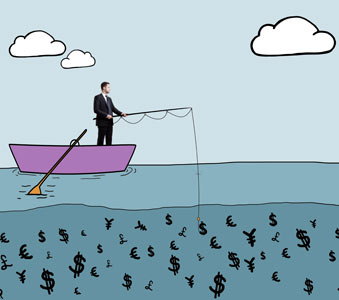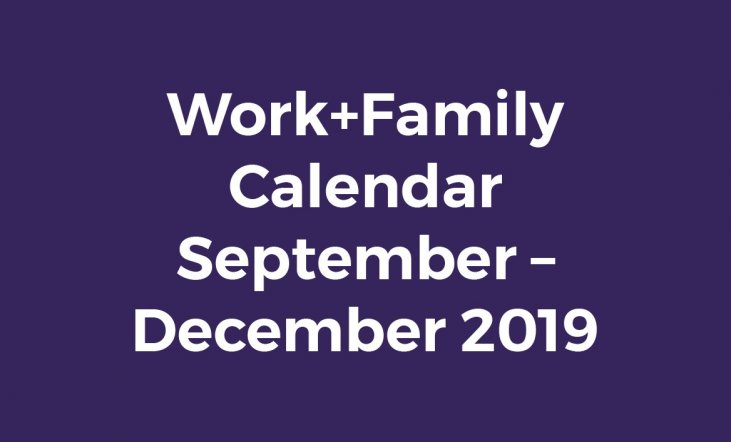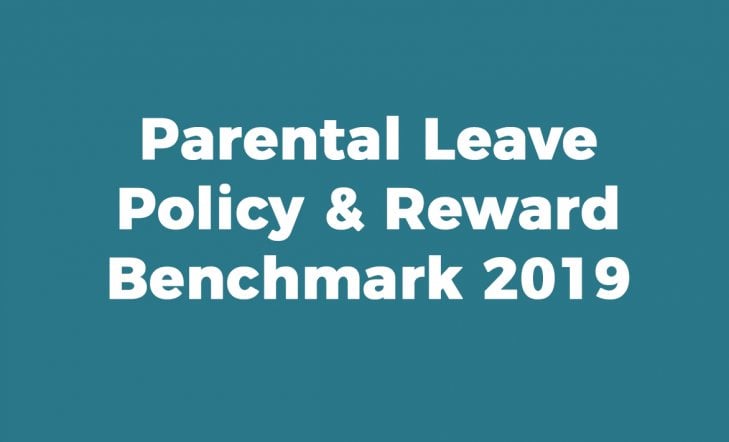Newsletter Sign Up
Regular work+family updates for
HR and diversity professionals.
My Family Care asks Hannah: How do you offer praise and recognition at home and at work? Do you use similar techniques in both situations? What advice do you have to make praise and recognition work?
Credit where credit's due
It's no secret that both giving and receiving praise makes us feel good: we're psychologically wired to function in a receive-give and give-receive kind of environment. When we feel a sense of pride and satisfaction in what we've achieved, our brain releases the hormone dopamine, immediately awakening the reward and pleasure areas of our brain.
Regardless of whether it's at home or in the office, receiving credit where credit is due is the simplest form of recognising one's existence. A cultural analysis by Alvesson & Willmott underlines that a sense of internal coherence and positive self-regard, facilitates a positive process of organisational control.
What on earth does that mean?
Basically, you are more likely to produce higher quality work in less time when you feel needed and positively regarded. When you are praised for enriching and supporting your office's mission or your families values, when you are recognised for contributing to your culture (co-workers, tasks, team goals), or pulling your weight at home, you'll feel that you are a valuable cog in the wheel. You'll feel engaged.
On the flip side, the ability to recognise the importance of an individual's particular talent in a team, and exactly how that can be supercharged, is at the root of a good manager (employer or parent), and, in turn, a successful venture.
Money doesn't equal happiness
Unfortunately, when it comes to work, some employers will simply throw money at their team in an attempt to provoke these feelings of worth and to motivate their staff to work hard, year upon year. And it's true, providing a short-lived, release-action financial reward can cause employee motivation to spike. Temporarily, at least. Sadly this is also the case in some home situations, where money seems to solve everything.
This is all very well in the short-term, but everyone knows that with the highs come the lows. Financial rewards can often contribute to a rollercoaster ride of emotions. Individuals receive a boost when they are rewarded, but tend to return quickly to 'normality', feeling more deflated than they did beforehand. What's more, being locked into an expectation that bonuses or allowances will increase year on year is a one-way track to disappointment across the board.
We are increasingly exposed to research backing the importance of non-financial praise and recognition as a way of motivating individuals for longer, sustained periods of time, whether that is peer-to-peer, employer-to-employee or familial relationships.
Financial vs non-financial incentives
Why is this? It's science: frequent feedback and recognition for completed projects or tasks results in small boosts of dopamine, the 'happy hormone', rather than the bonus cycle, which is extreme highs followed by lows.
The nature of peer-to-peer recognition means that employees are not only praised when they are expecting it, but also when they are not; whether it's from colleagues in their team, other staff members across departments or family members. It's a no-brainer: there's less expectation and therefore less disappointment, in addition to a greater appreciation for the recognition they do receive.
According to McKinsey & Company: "non-financial motivators are more effective than extra cash in building long-term employee engagement in most sectors, job functions, and business contexts", as illustrated below:
Non-financial incentives | Financial incentives |
| Praise and commendation from immmediate manager | Performance-based cash bonus |
| 67% | 60% |
| 63% | 68% |
| Attention from leader | Increase in base pay |
| 63% | 52% |
| 41% | 61% |
| Opportunities to lead projects or task forces | Stock or stock options |
| 62% | 35% |
| 54% | 24% |
| Frequent use - % of respondents answering 'always' or 'most of the time' | Effectiveness - % of respondents answering 'extremely' or 'very effective' |
Praise in practice
So, how can you praise and recognise at work to ensure that you don't tip the scale in the wrong direction? A rewards system is something that needs to be worked on systematically. We work with various companies, but many of these principles can be used at home as well.
Here are a few simple suggestions to get you started:
- Be specific in your praise - recognise individual achievements. Whether that is a well-written report, a creative idea or a perfect cup of tea. Shout about it!
- Show appreciation - both employees and employers can recognise hard work and achievement. Give your teammate a simple, verbal 'well done' or a quick pat on the back. Or, if you're an employer with a little cash to spare, you can go all out and reward a star team member with an experience, like a skydive or a hot air balloon ride.
- Be individual - this one's for the employers: you need to understand your team and personalise your praise. Not everyone will want to be praised publicly - some value a simple thank you gift over long public speeches of adornment. Understand the 'language' someone speaks and recognise them in a way they will appreciate most. It's this that will differentiate you from other employers.
So get showing some appreciation! Reward and recognise your teammates and family members, and see how positive feedback creates a tighter, more productive culture within your workplace.
Hannah Sims, Marketing Executive, Perkbox












